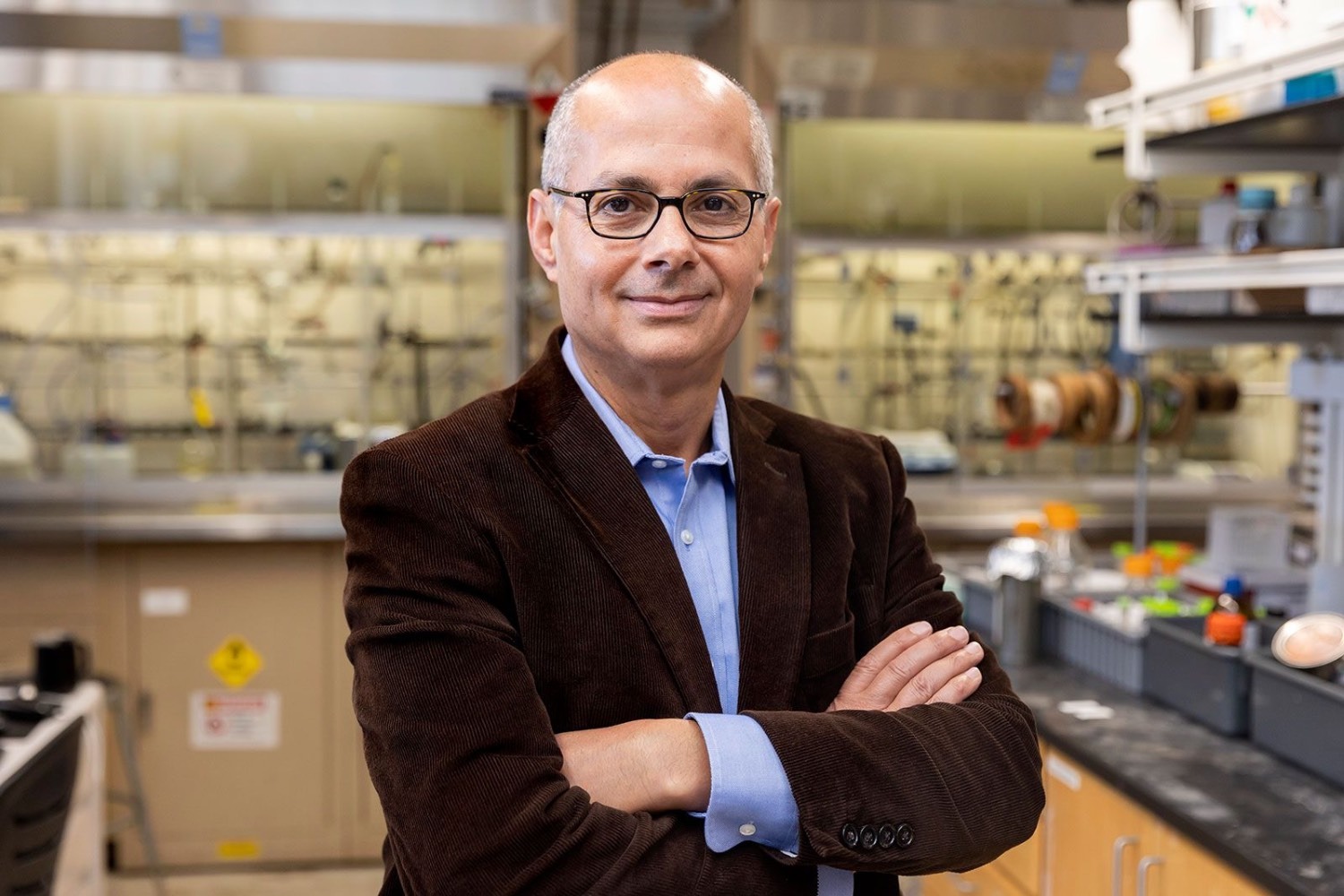Building the Framework of the Future:
Omar Yaghi’s Chemistry of Possibility

Building the Framework of the Future:

Ten years ago, in 2015, Professor Omar Yaghi received the Mustafa(pbuh) Prize for his pioneering work in developing Metal–Organic Frameworks (MOFs), a new class of materials with vast potential for energy, environment, and health applications. A decade later, in 2025, the world celebrates him again—this time as a Nobel Laureate in Chemistry. In this exclusive interview with the Mustafa(pbuh) Science and Technology Foundation (MSTF), Professor Yaghi reflects on his journey of discovery, his philosophy of science, and his advice to the next generation of scientists.
“Experiment Is the Gate to Discovery”
“When you give nature a chance to reveal itself through hard work, keen observation, and rigorous science,” Professor Yaghi begins, “you realize that what we call failures are really increments of success. Many people will say it won’t work—you should be the one who says it will.
Experiment is the gate to discovery, and discovery can change the world.”
Persistence, he adds, is key:
“If you have a choice between doing the experiment or not doing it—do the experiment.”
Mentors and Early Lessons
Reflecting on his formative years, Yaghi speaks of two people who deeply shaped his scientific character.
“My father taught me to do the job well and completely—there was no other option. That formed my work ethic. My PhD advisor, Professor Walter Klemperer, taught me how to be a rigorous scientist. Both taught me not to follow others’ footsteps but to find new directions in research—to think differently and pursue the unknown.”
Defining a New Age of Materials
When asked about the future of materials science, Yaghi draws a sweeping arc through human civilization.
“We name our ages after the materials we master—the Stone Age, the Bronze Age, the Iron Age, the Silicon Age. Every time we learned to control matter at a finer level, our service to humanity expanded.
With Metal–Organic Frameworks (MOFs), we’ve reached the ultimate level of design—precision at the atomic and molecular scale.”
Overcoming Doubt and the Challenge of Discovery
Yaghi recalls that the hardest part of science wasn’t chemistry itself—it was human doubt.
“Chemistry was a delight. The real challenge was the people who said, ‘It can’t be done.’ I learned that even if 95% of people don’t support you, there will always be 5% who do—and that’s all you need to build something great.”
Education: From Cookbooks to Curiosity
Turning to the topic of education, Professor Yaghi calls for a shift from rigid teaching toward freedom and creativity.
“When I was growing up, I was given space to explore. That freedom gave me confidence to try new things.
I think our educational systems need to encourage students to deal with chaos and unexpected results. Too much of our teaching is ‘cookbook-style.’ Students should learn to explore, to solve problems, to embrace uncertainty.”
To young researchers, his advice is simple but profound:
“If you can do the experiment, do it. Don’t only do what guarantees success—take risks. That’s where real discovery happens, not just about nature but about yourself.”
The Chemistry Behind MOFs
What makes MOFs so extraordinary? Yaghi explains with characteristic clarity:
“They’re made from very common ingredients—minerals and carbon-based compounds—stitched together to create completely new materials with enormous internal space.
In just one gram, smaller than a sugar cube, there’s enough surface area to cover an entire football field! That’s why they’re so powerful for gas storage, catalysis, and many other applications.
The key is precision: we can design their frameworks and porosity to be custom-made for specific needs.”
The Future: MOFs Meet AI
Yaghi believes we’re only at the beginning of the MOF era.
“We’ve barely scratched the surface. Countless materials remain undiscovered. Imagine designing materials that behave like DNA, with sequences of information coding for specific properties.
Now blend that with AI—AI-guided reticular chemistry—and the possibilities become endless.”
Basic Research: The Silent Engine of Progress
For Yaghi, research is more than a career—it’s a refuge.
“Doing research is like a retreat from the world—a chance to push the frontiers of knowledge.
Society may not always see the immediate value of basic research, but when we solve foundational problems, we open doors to countless benefits. Scholars need room to explore ideas freely.”
How He Wishes to Be Remembered
“For me, fulfillment comes from knowing I’ve introduced a new kind of chemistry—one that not only advances fundamental science but also addresses humanity’s greatest challenges, like water and carbon capture. Seeing this chemistry thrive for society’s benefit is deeply satisfying.”
A Message to the Scientific Community
In closing, Professor Yaghi reflects on his connection to the Mustafa Prize:
“The Mustafa Prize was among the first international recognitions I received. It told the world that this scientist has done something significant.
I encourage everyone to nominate deserving scientists for the next round. The prize has grown tremendously over the last decade and continues to shine as a prestigious global award.”
He adds that he recognizes the efforts of scientists to remain engaged in learning through educational and scientific communication, and the promotion of science worldwide for the betterment of humanity.
On the Mustafa Prize
“I can say that the Mustafa(pbuh) Prize was one of the very first international awards I received. It’s a prestigious prize — a statement to the world that this scientist has made a significant contribution.
Therefore, I encourage everyone who knows a prominent scientist with valuable achievements to nominate them to the Mustafa Prize Selection Committee.
I’ve been following this prize for the past ten years, and I’ve seen how it has grown and become increasingly recognized worldwide.
So I invite all of you to nominate your favorite scientist for this award.”